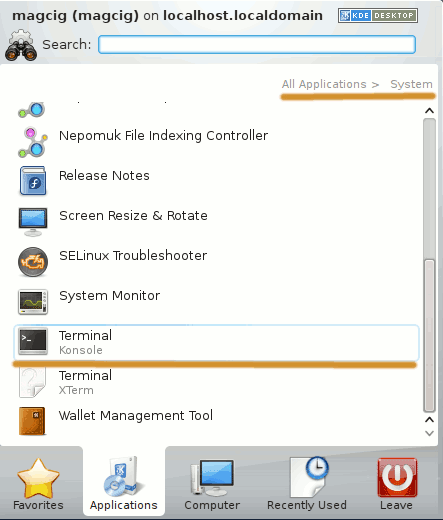Install the Latest MySQL 5.7+ on Kubuntu 14.04 Trusty
The Tutorial shows you How to Get Always Freshly Installed the Latest MySQL 5.7.X on Kubuntu 14.04 Trusty Tahr LTS Linux.
Sometimes you should Easily getting installed the Latest MySQL Version Simply by the Apt Ubuntu Repos but that’s Not Ever True.
So to Get Constantly Installed the Latest MySQL Server/Client Release on Kubuntu you will Need to Download from Oracle the Latest MySQL Community Edition Debian Package.
An Important Step to Take into Account After Installation is to Secure the MySQL Server Installation by the Proper Tool.
-
Download Latest MySQL Server for Ubuntu
-
Open Terminal Window
(Press “Enter” to Execute Commands)
In case first see: Terminal Quick Start Guide.
-
Installing GDebi Package Installer.
sudo su
If Got “User is Not in Sudoers file” then see: How to Enable sudo
sudo apt-get install gdebi
-
Installing MySQL .deb.
gdebi /[path/2]/mysql*debian*.deb
-
Post-Installation Configuration.
groupadd mysql
useradd -r -g mysql mysql
chown -R mysql:mysql /opt/mysql
/opt/mysql/server*/scripts/mysql_install_db --user=mysql
chown -R root /opt/mysql
chown -R mysql /opt/mysql/server*/data
-
Setting the User PATH.
su [myUser]
cd
nano .bashrc
Append:
export PATH=$PATH:/opt/mysql/server-[Version]/bin
Ctrl+X to Save & Exit from nano :)
Load New PATH:
bash
-
Strongly Recommended MySQL Server Secure SetUp
MySQL Secure Server SetUp
-
Starting the MySQL Server.
sudo su -c "mysqld_safe --user=mysql &"

